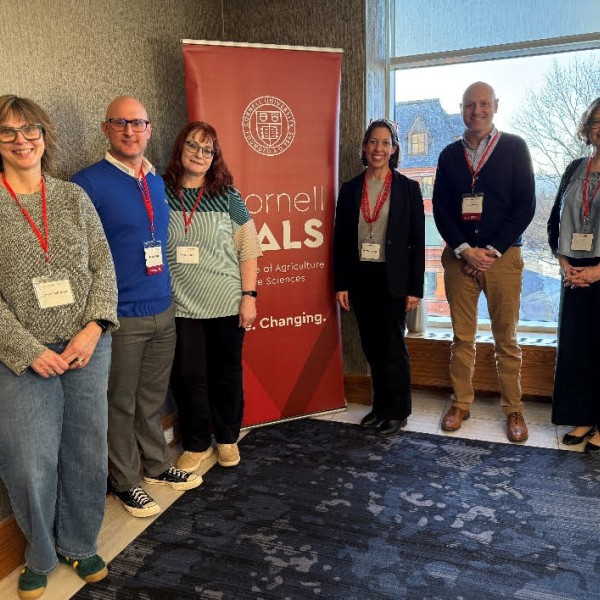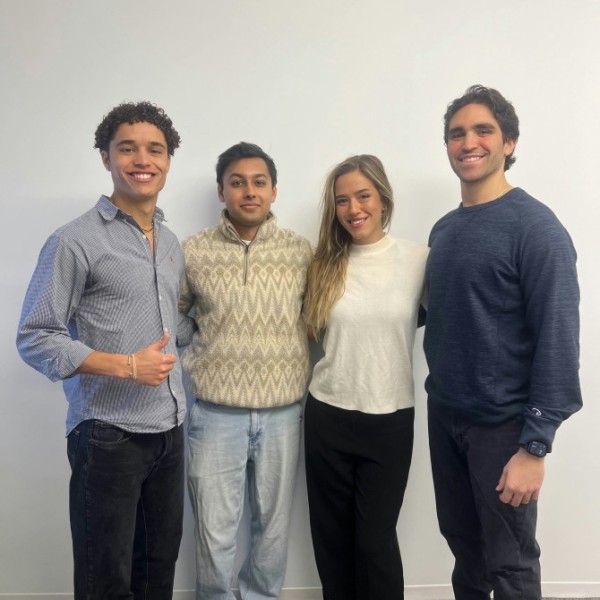A new program, the CALS Student Success Navigator Program, provides additional assistance to new first-year and transfer students and their families, and it aims to build a community of support to ensure academic, personal and professional success for students from historically excluded, under-resourced and nontraditional backgrounds. In CALS’ current undergraduate class, 23% of students are first-generation college students, 21% are recipients of federal Pell Grants for students from lower income families, and 27% identify as a race or ethnicity underrepresented in academia.
“My parents did not attend a four-year college so although they were supportive of my next educational step, they didn't know what advice or support to offer,” LaFave said. “Having someone available to ease the transition and explain the ‘ways of Cornell’ would have been valuable instead of leaning on my peers for advice, which didn't always lead to the best academic choices. A Transfer Navigator could have guided me to the resources I needed most and ensured a much smoother Cornell experience.”
The new navigator program is led by Rhonda Todd, the inaugural director of inclusive academic advising in CALS. For many nontraditional students transitioning from high school or transferring to Cornell, the biggest challenge isn’t competence, it’s confidence, Todd said: current and prospective students from historically excluded backgrounds may face a host of unseen challenges, from not being aware of available resources to feeling overwhelmed about seeking help at a large Ivy League university.
“The goal is to partner with students on their individual journeys – from high school or a transfer college into CALS through graduation – knowing that they belong, that they are supported, and that when life happens, they can recover and get back on track,” Todd said. “We want students to feel empowered and to know they’re not alone.”
While there are a host of resources available throughout Cornell to help under-resourced students, what makes the Navigator program different is its individualized approach and its early start: Navigators can begin providing assistance before a student is even accepted, Todd said, noting that students from low-income, traditionally excluded backgrounds often self-select out and don’t apply to Cornell because they’re not aware of available resources.
Navigators build one-on-one relationships with students and their families, and they offer advice on anything from how to obtain application fee waivers to appropriate and effective strategies for communicating with professors. They guide students through pre-enrollment details; connect them to campus resources and student organizations; transition students to their advisors through fall new student orientation; and continue to be a resource for students into the fall semester and beyond.
Two navigators have been funded so far: one focused on helping students transition from high school to CALS and one focused on supporting transfer students. Seth Brufsky ’88, a member of the CALS Dean’s Advisory Council, provided start-up funding to hire the first two navigators. Todd hopes to eventually expand the program to four navigators. The Navigator program and Todd’s new position are among the outcomes of CALS’ efforts in recent years to strengthen diversity, equity and inclusion.
“The navigator can be that one person a student feels comfortable asking a question. They can be the trusted person to say, ‘I think you should meet with this person, let’s make the connection, I’ll walk you over and introduce you,’” Todd said. “It’s more intimate and removes potential intimidation. It makes a big process, big units, a big thought, smaller and more manageable.”
Krisy Gashler is a writer for the College of Agriculture and Life Sciences.





